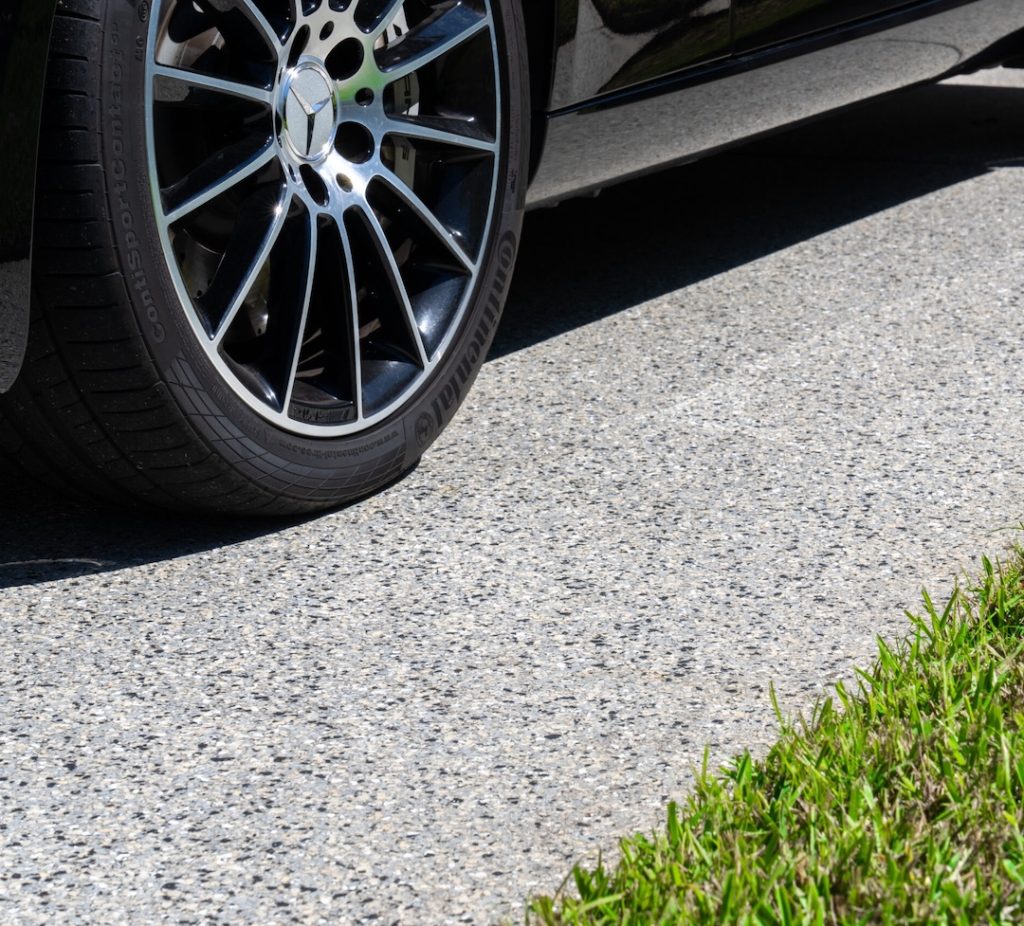
Cement Sealer vs. Concrete Coatings: Which One Offers Better Protection?
If you want to protect your concrete surfaces from moisture, stains, and wear, you’ve probably considered using a cement sealer. Sealers are often marketed as a simple and cost-effective way to preserve concrete driveways, patios, garages, and commercial floors. However, what many people don’t realize is that cement sealers provide only temporary protection, requiring frequent reapplication and offering little resistance to cracks, heavy traffic, and chemical spills.
For those looking for a long-term solution, concrete coatings like polyurea offer stronger, more durable protection that far outperforms traditional sealers. At Peak Coatings, we specialize in high-performance polyurea coatings that provide a seamless, long-lasting shield for concrete surfaces. If you’re debating between a cement sealer and a professional concrete coating, here’s what you need to know.
What Is a Cement Sealer?
A cement sealer is a liquid applied over concrete to form a thin protective barrier against moisture, stains, and minor wear. There are two main types:
- Penetrating Sealers – Absorb into the concrete, reducing water absorption and preventing surface deterioration.
- Film-Forming Sealers – Create a thin layer on top of the concrete, offering basic stain and moisture resistance.
While cement sealers provide some level of protection, they have major limitations, including short lifespan, minimal impact resistance, and frequent maintenance requirements.
What Are Concrete Coatings?
Unlike cement sealers, which are thin and temporary, concrete coatings like polyurea create a thicker, more durable protective layer. Coatings bond directly with the concrete, making them resistant to:
- Cracks, peeling, and chipping
- Oil, chemicals, and moisture
- Heavy vehicle and foot traffic
- UV exposure, preventing fading and discoloration
While a cement sealer simply covers the surface, a polyurea coating reinforces the concrete itself, providing decades of protection without the need for frequent maintenance.
Cement Sealer vs. Concrete Coatings: Key Differences
| Feature | Cement Sealer | Polyurea Concrete Coating |
| Durability | Wears down quickly, requiring reapplication | Resistant to heavy impacts, cracks, and abrasion |
| Lifespan | 1-3 years | 20+ years |
| Protection | Only protects against minor stains and moisture | Guards against chemicals, moisture, and heavy traffic |
| UV Resistance | Prone to fading and yellowing | 100% UV-resistant, won’t discolor over time |
| Slip Resistance | Can become slippery when wet | Textured surface enhances traction |
| Application Time | Quick to apply, but requires frequent resealing | One-day installation, long-lasting results |
| Maintenance | Requires regular reapplication | Low maintenance, easy to clean |
Why Cement Sealers Fall Short
Many people choose cement sealers because they seem like an affordable and easy option, but over time, they end up costing more due to frequent reapplication and limited durability.
1. Short Lifespan Requires Frequent Resealing
Cement sealers last only 1-3 years before they start wearing away, peeling, or becoming ineffective. This means:
- Frequent reapplication, increasing long-term costs.
- Deteriorating protection, leaving your concrete exposed to damage.
- Extra labor and downtime, especially for businesses and high-traffic areas.
A polyurea concrete coating, on the other hand, is a one-time investment that lasts decades without the need for repeated maintenance.
2. Minimal Impact and Crack Resistance
If your concrete surface is exposed to vehicles, equipment, or foot traffic, a cement sealer won’t be enough to prevent chipping, cracking, or abrasion.
Polyurea coatings are four times stronger than epoxy and provide a flexible, impact-resistant layer that prevents:
- Chipping from dropped tools and equipment
- Cracks from temperature changes
- Peeling or flaking due to wear and tear
3. Poor Chemical and Stain Resistance
A common reason people apply cement sealers is to prevent stains, but most sealers provide only basic protection. Harsh chemicals like oil, gas, or road salt can still seep into the concrete, leading to:
- Permanent discoloration
- Surface breakdown and deterioration
- Expensive repairs or resurfacing
Polyurea coatings create a completely sealed, non-porous surface, making them 100 percent resistant to oil, chemicals, and stains.
4. Prone to Fading and UV Damage
Cement sealers tend to fade, yellow, or break down under UV exposure, especially in garages, patios, and outdoor spaces.
Polyurea coatings are 100 percent UV-resistant, meaning they:
- Won’t fade, yellow, or discolor over time
- Can be used for both indoor and outdoor applications
- Maintain a vibrant, long-lasting finish
Why Polyurea Coatings Are the Better Investment
While cement sealers may seem like a quick fix, polyurea coatings provide a lasting solution that eliminates the hassles of reapplication, staining, and deterioration.
With Peak Coatings’ polyurea concrete coatings, you get:
- Superior durability – No chipping, cracking, or peeling.
- Long-term protection – Lasts 20+ years, unlike sealers that wear off.
- One-day installation – Quick turnaround, minimal downtime.
- Chemical and stain resistance – Easy to clean, no permanent damage.
- UV stability – No yellowing or fading over time.
Final Thoughts: Choose the Right Protection for Your Concrete
If you’re considering a cement sealer, it’s important to know that it won’t provide long-term protection for your concrete. While it may seem like a cheap and easy fix, sealers require frequent maintenance and fail to protect against cracks, stains, and heavy use.
A polyurea concrete coating from Peak Coatings offers a permanent, high-performance solution that keeps your concrete protected, clean, and looking great for decades.
If you want a durable, low-maintenance, and long-lasting alternative to cement sealers, contact Peak Coatings today for a free consultation. Let’s upgrade your concrete with a coating that truly lasts.
